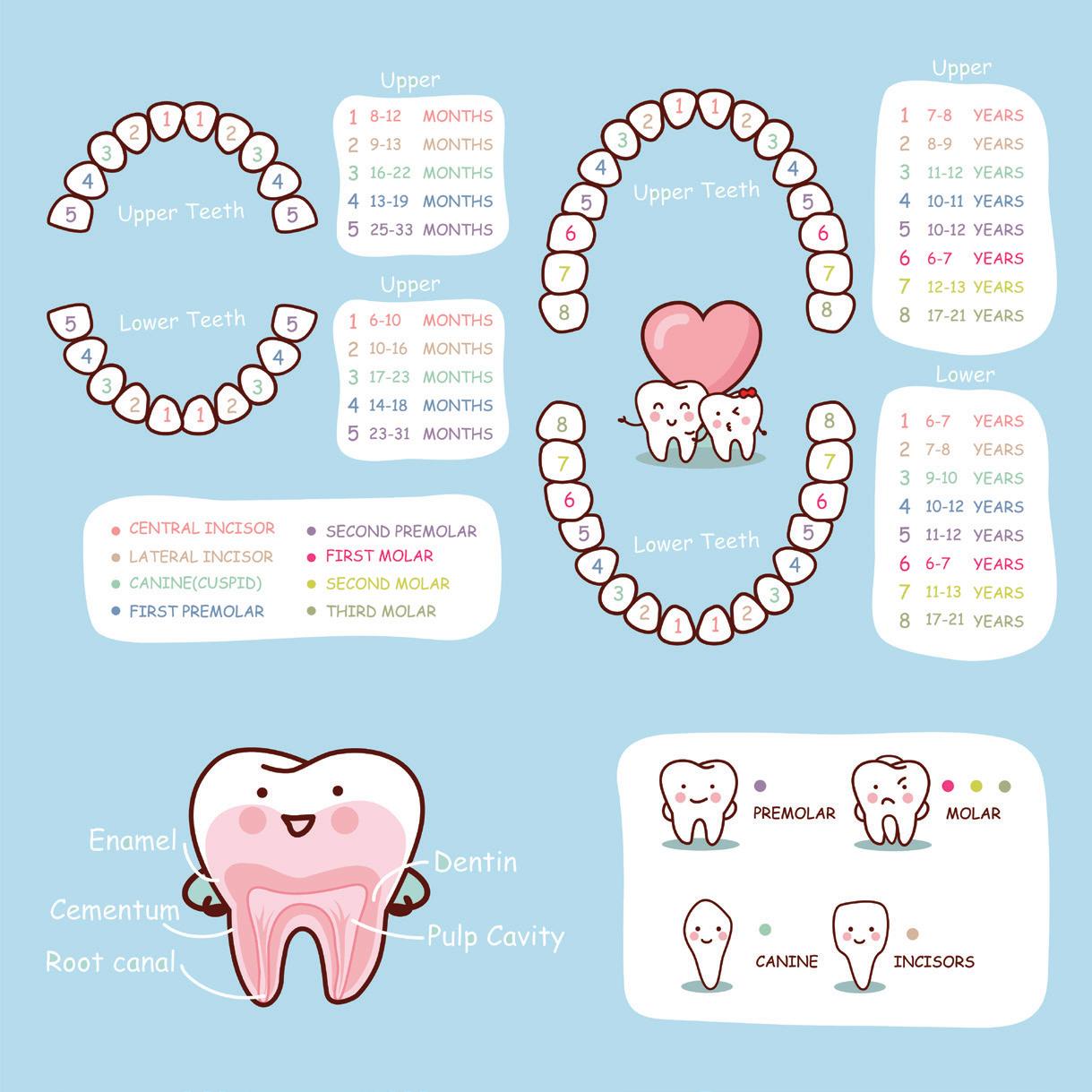
3 minute read
Teach Your Children The Importance of Good Oral Health
from February 2023
by VIP Magazine
National Children's Dental Health Month take a step further with foundational concepts that will last for a lifetime.
In February, we recognize National Children's Dental Health Month. During this time, we remind children and adults of the importance of maintaining good oral health. Adults do take pride in children's teeth more than we acknowledge. For example, a glimpse of baby teeth peeking through an infant's gum yields an automatic expression of excitement. We pridefully show off the two or four pegs protruding through the infant's delicate gums. The onset of teeth makes a distinctive difference and is the first thing we notice during a bright smile.
Advertisement
There is so much more behind your smile. There is a mouth full of unique pearly whites that serves a purpose far beyond what the eyes can see. Oral health extends from the enamel we see to the blood and nerve endings snuggled inside each tooth. Usually, the big focus on oral health for children has been to teach them to brush their teeth and floss daily. However, a more significant push should be made to teach children to be more intentional with maintaining oral health.
There are many foundational things that children need to be exposed to as we begin to teach them about oral health. This year we can intentionally give children a deeper view based on their understanding.
Have you ever tried to explain the purpose of teeth to children? Many people do not. We are encouraged to brush our teeth twice daily because it is the proper thing to do. However, overall, we need to make this act of brushing purposeful. When you take the time to make an action purposeful and meaningful, you will have a better outcome with the desired practice.
With a quick flash, many children grab their toothbrushes, squirt their toothpaste and attempt to brush their teeth in haste. Let us teach our children to slow down and brush their teeth for two minutes. A timer can be used, or even a song may be played to help the two-minute time frame pass. Children should also use proper brushing techniques to remove food, tartar, or other unwanted particles. If they are brushing in haste, they could miss something.
Children usually acquire twenty primary teeth (baby teeth) that are eventually replaced by thirty-two permanent adult teeth by the time they are teenagers. The first way we can make oral health practice an intentional practice is by teaching our children the names of permanent teeth and the role of each set of teeth. We have incisors, canine, pre-molars, molars, and wisdom teeth.
Incisors are square-shaped teeth at the front, with four at the top and four at the bottom. These teeth are responsible for cutting food as you take a bite. The four canine teeth are the sharp "vampire" teeth next to the incisors and help tear food. The pre-molars beside the canine teeth are wider and help grind and crush food. The molars are positioned at the back of the mouth and are the strongest. These teeth also help grind food so it would be easy to swallow. The wisdom teeth usually grow later than others and serve the same purpose as a molar. Understanding the role of each set can foster a deeper connection with oral maintenance.
Maintaining good oral health also impacts self-confidence. Good oral health reduces the barriers that inhibit smiles. Children will be more inclined to speak confidently if they have good oral health. Teeth technically help with speech. Even though we can speak without teeth, teeth help with the process of pronouncing words correctly.
We must also teach children how teeth have an overall impact on total health. We see the crown of a tooth but cannot see the root unless an x-ray is performed. Poor oral health generates within the gums and can spread throughout the mouth. The impact can eventually affect other systems throughout the body. Poor oral health has been linked to other life-threatening diseases such as heart disease, stroke, and diabetes. The mouth is the gateway to our body's systems and can house various forms of bacteria if not cared for correctly.

The American Dental Association was the originator of National Children's Dental Health month. The intent was to raise awareness about the importance of oral health. Since its inception, many advancements have been revealed, which makes maintaining oral health a much easier task. It is important to remember that oral health starts in infancy and should last a lifetime. This means there will be fewer incidents of correcting bad oral health habits.
Maintaining good oral health should also include introducing children to the dentist early. There should also be an intentional effort not to instill fear of the dentist in children. We can also be more purposeful in celebrating good oral health. Compliment their brushing techniques and habits. Let us give them a reason to keep a bright, healthy smile.










